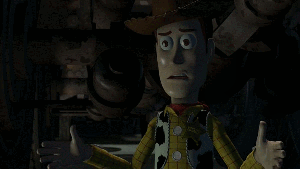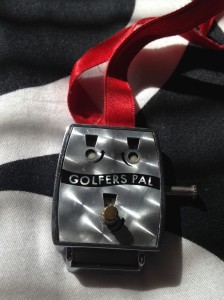There are strong correlations between instances of Tourette Syndrome, OCD, and ADHD. They are common comorbidities, to use the technical term. I always kind of figured I had TS with a dash of OCD and a sprinkle of ADHD. I’d say waffley things like “some ADHD-like traits.” I went through a journey toward the end of college of pursuing an ADHD diagnosis and basically just had pills thrown at me. I spent the years since wondering whether I truly had ADHD.
Tonight I am convinced that I do.
I started a class this week, my first as a student in a year and a half – long enough for me to forget how unpleasant the whole “homework” process is for me. Right now, as bedtime approaches, and tomorrow’s assignment is only halfway done, what am I doing…?
ADHD is so much more than just procrastination. And people whose brains don’t work like this don’t get it. I want to work. I want to get this done. I want to print it off and go to bed. I want to do those things more than anything.
But when I open up my textbook?
I can’t. I can’t focus on the words on the page. I run my eyes over them repeatedly and no meaning reaches my brain. I reread the essay prompt to apply it to the text and can’t focus on the academic language.
I’m lucky enough to have functional coping skills. My brain will turn on once I reach the “last minute” (I do not have control of when ADHD decides that may be). Once that happens, I can crank work out quickly. It feels like a sloppy, last-ditch effort, but lucky again, I always do well. (The fact that this strategy has never backfired makes it impossible to combat. ADHD says, “see, this system works great. Why change it?”)
My ADHD looks like procrastination but it’s not willful. If you want to hang out with me and I’m holed up writing a paper that’s due tomorrow, please believe that I tried to write it earlier. Please believe that it isn’t personal – neither a personal affront to you, nor a testament to any personal lack of character on my end. I tried to write it and I couldn’t focus on the words on the page, the words on the screen, the words in my brain. None of them turned into ideas. None of them meant anything.
Please don’t judge my character based on my disability*. I’m not a lazy or careless person. How often have I tried so hard to write that big paper in advance, to start the project ahead of time, to otherwise free up my schedule near the due date? The nights I spend trying to type up a little essay, so humiliated and defeated that I can’t accomplish the simple task, and end up crying in self-loathing because I wasted hours and accomplished nothing – those are some of my darkest times. If there was a way to make them go away**, don’t you believe that I would?
And I have it pretty good, as far as ADHD goes. I’ve always earned good grades. My disability is not obvious to other people. Yet it teases and tortures me through every class assignment, every IEP I write, every strategy I research, every book I read, every extra little thing that comes up.
This post is longer than what’s left to do on my current assignment. Isn’t that a pleasant little irony? I figure if my brain’s not ready to do that yet, may as well type this up in the moment. Give an authentic little taste.
Do you struggle with focus or attention? What are your coping mechanisms? Have you tried natural remedies? What do you recommend?
*That’s ableism. Discrimination.
**I’ll chat about my medication journey another time. Spoiler alert: it was not a positive experience.
(And, a disclaimer, of course, that this is my personal experience. I can’t speak for anyone else.)






